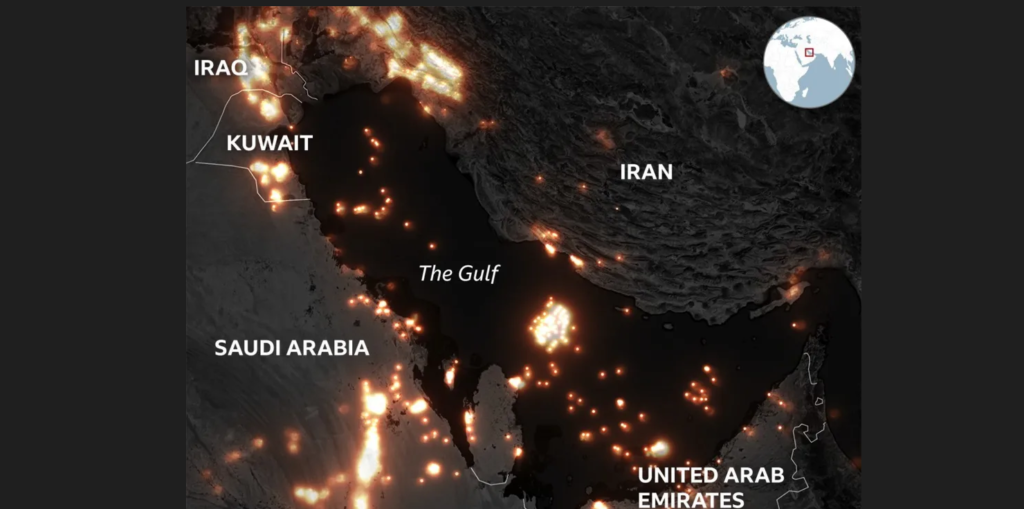BBC investigation report reveals that toxic pollutants released during gas flaring in the Middle East, including by COP28 hosts the United Arab Emirates (UAE), are endangering millions more people than previously thought.
Flaring, the burning of waste gas during oil drilling in the Middle East, is shown to be spreading pollution hundreds of miles across the Gulf region, worsening air quality in UAE.
Despite the UAE’s ban on flaring 20 years ago, evidence suggests it continues, with potential health consequences for residents and neighboring countries.
Oil companies, including BP and Shell, claim to be working to reduce the practice. The findings coincide with leaked documents revealing the UAE’s plans to use its role as the COP28 host to strike oil and gas deals.
READ MORE: UAE Union Day Delight: Ras Al Khaimah Offers 50% Discount on Public Fines
The UN Special Rapporteur on Human Rights and the Environment condemns the violations, emphasizing the severe health risks associated with air pollution from fossil fuels.
The documentary is available on BBC iPlayer, shedding light on how toxic air pollution from oil giants is affecting millions in the region. Flaring releases pollutants linked to strokes, cancer, asthma, and heart disease, contributing to global greenhouse gas emissions.
The UAE’s national oil company, Adnoc, pledged two decades ago to end routine flaring, but satellite images show it continues daily at offshore sites.
The UAE, a major oil source for the UK, faces challenges in measuring ground-level air pollution, impacting official data. The investigation highlights the significant health risks, particularly for children, in a region already grappling with high rates of respiratory diseases like asthma.
Via: BBC


